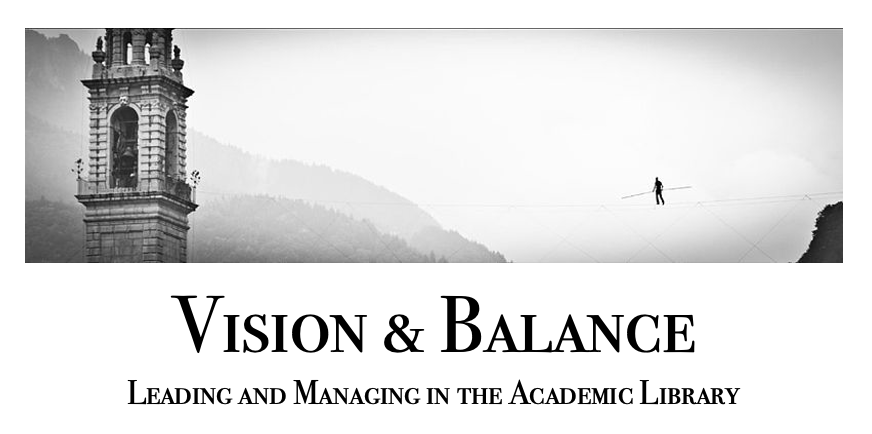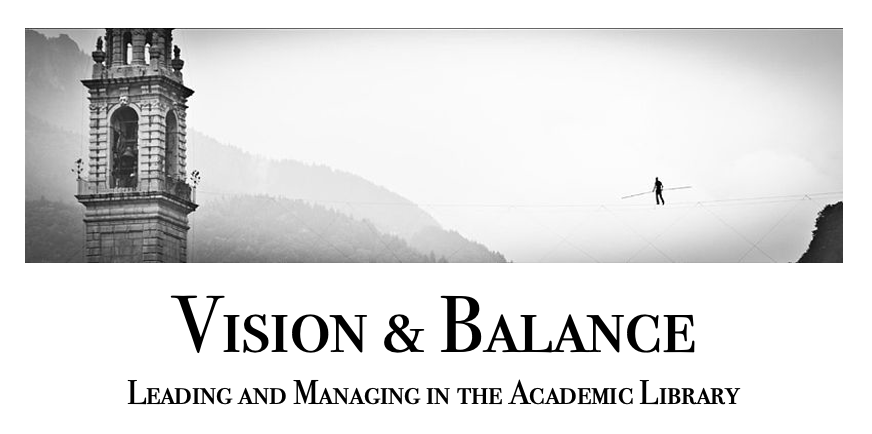The Danger of Halo Words: Or, the Purpose of Assessment Is Not to Assess
If we make the mistake of seeing assessment as a goal in itself, our tendency will be to assess everything we can as rigorously as we can. But if our goal is to achieve organizational improvement, we will focus our assessment activities on the things that matter most to our strategic priorities.

In an earlier post, I wrote about what I called the “value-neutrality” of innovation – basically making the point that an initiative isn’t necessarily either more or less valuable simply because it can reasonably be called “innovative.” What matters is whether it represents (or leads to) improvement. Improvement that is accomplished in an old-fashioned way is better than stagnation or regression achieved through innovation.
Today I’d like to expand a bit on the important leadership principle that underlies the point above: the principle of keeping ends and means straight in our minds as we create and carry out strategy in the library.
Innovation is not an end; it’s a means to an end. The same can be said of other principles that I often see invoked as if they were ends in themselves. Collaboration is one. (As Cliff Lynch once said in my hearing, “The purpose of collaboration is not to collaborate.”) And another is assessment. “Innovation,” “collaboration,” “assessment” – all of these are “halo words,” terms that libraries sometimes invoke because they know they should, or in order to signal their organizational virtue. And the terms can serve that purpose quite well. Unfortunately, however, a more virtuous library may or may not be one that serves its patrons and its institution better.
Today, let’s look at this issue in the specific context of assessment.
Many libraries – my own included – repeatedly emphasize their commitment to fostering a “culture of assessment.” And this is a good thing! We should be assessing ourselves constantly, rigorously, and effectively. Are our collections aligned well with the curricula we are here to support? Are students and faculty having good and productive experiences with our staff and services? Is our website inviting and easy to use? Are our physical spaces organized and maintained such that they meet the real-world needs of our patrons?
If we make the mistake of seeing assessment as a goal in itself, our tendency will be to assess everything we can as rigorously as we can.
These are all absolutely essential questions to ask – and we should be asking them iteratively and regularly. Assessment is the process of gaining answers to those questions, and to the degree that we do assessment well the answers will be accurate, precise, and reliable.
And then… we will have done assessment. Goal achieved! Right?
Wrong.
Assessment is not – or should not be – a goal in itself. By the same token, fostering a “culture of assessment” is not a goal in itself. What we need in libraries is a culture of improvement, in the pursuit of which assessment is one important tool. If we make the mistake of seeing assessment as a goal in itself, our tendency will be to assess everything we can as rigorously as we can. But if our goal is to achieve organizational improvement, we will focus our assessment activities on the things that matter most to our strategic priorities, and we will assess them to the degree necessary to support real and meaningful improvement. And we will then act, strategically, on the results of that assessment behavior.
To be clear: none of this is to say that there’s anything wrong with fostering a culture of assessment. It is only to say that we shouldn’t confuse the means (fostering a culture of assessment) with the ends (improving our libraries). If we see assessment as a goal in itself, we’re liable to end up with an ongoing series of very thorough, very rigorous assessment documents that get filed in a drawer (either physical or virtual) and are never consulted again because they have fulfilled their organizational purpose – which is to demonstrate our culture of assessment. I’ve seen this happen too often, and I’ll bet you have too. The way to avoid this is to assess strategically, and always with the purpose of using assessment as a tool for the accomplishment of clear and specific goals.
Takeaways and Action Items
- Assessment is a means to an end, a tool that we use to accomplish a task. It is not an end in itself.
- Libraries need more than a “culture of assessment” – they need a culture of strategic improvement, informed by assessment.
- How does your organization approach assessment? Can you identify important changes in your facility, collections, and programming that were informed and facilitated by effective assessment? Have there been assessment initiatives that resulted in little or no organizational improvement? If so, what needs to change in your library?
